Various factors can affect the shiny appearance of your tattoo. From the type of skin you have to the ink quality and even external environmental and lifestyle factors, there's a lot at play when it comes to the reflective qualities of your ink.
New skin grows beneath all the scabs, giving your skin a shiny appearance. A few weeks later, your skin will have a beautiful tattoo layer. The shiny layer of skin around your wound indicates that you are still healing.
In this blog post, look at the factors behind shiny tattoos and shed some light on this common issue.
Why Does My Tattoo Look Shiny: Skin-Related Facts
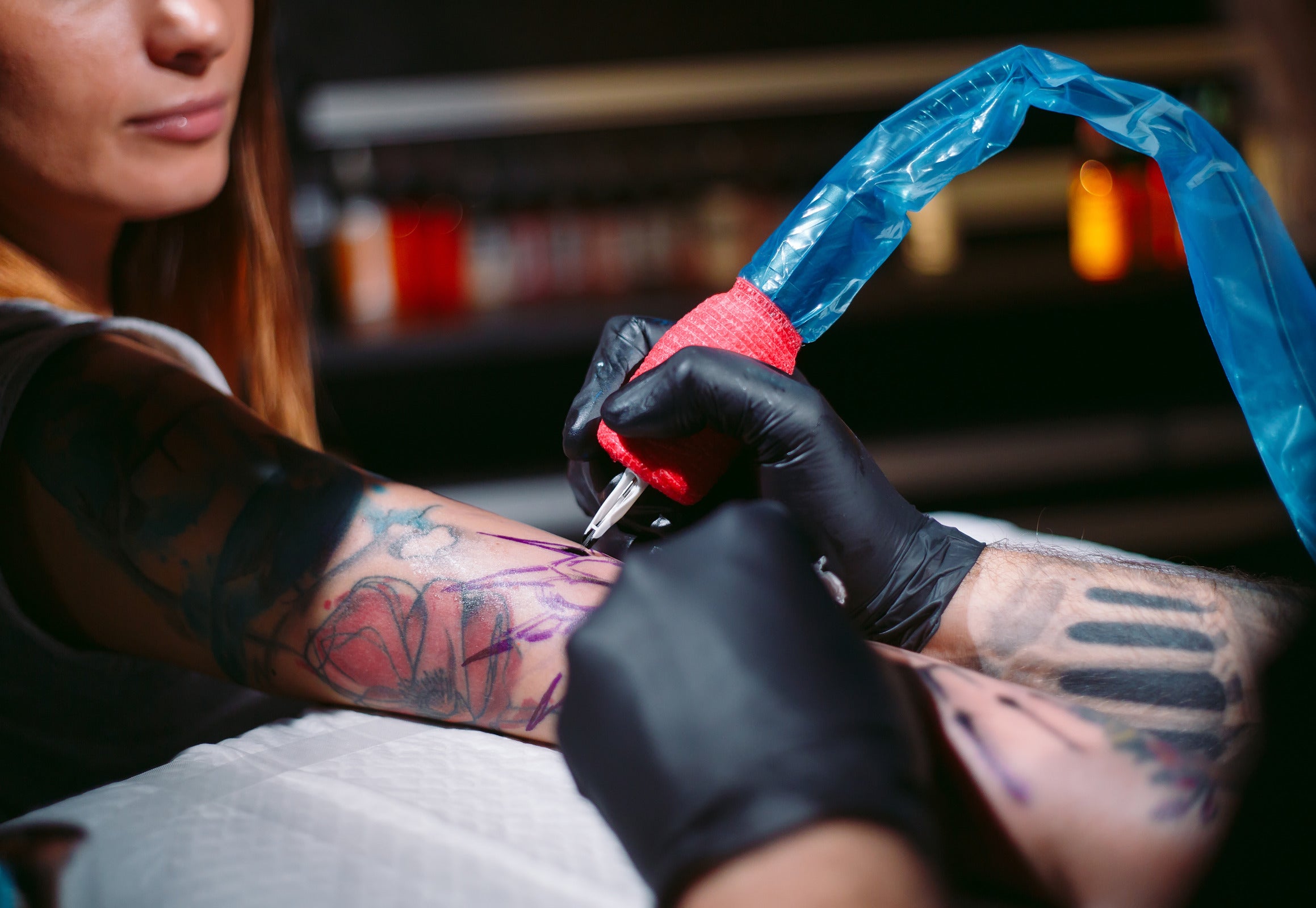
A new tattoo spot usually appears shiny initially, but sometimes, this can last long. Various skin-related elements contribute to a tattoo's glossy appearance. Understanding these factors can help in proper aftercare and future tattoo planning. Here are some things you need to know:
Skin Type and Color
Fair-skinned people have tattoos that appear more vibrant and shiny, while those with darker skin tones might have duller tattoos. The texture of your skin can also affect how shiny your tattoo looks.
People with oily skin have shinier tattoos, while those with dry skin might have matte tattoos. Sun damage also affects tattoos' looks. If you spend much time in the sun, your tattoo is faded or discolored.
Skin Moisture and Oiliness
The moisture and oil level in your skin influences the look of your tattoo. If your skin is too dry, your tattoo might appear dull or flaky. If your skin is overly oily, your tattoo might appear shinier than usual.
Using products like lotion or moisturizer can help keep your skin hydrated and prevent excess shininess. If you notice your tattoo becoming excessively shiny or looks waxy, avoid using oil-based products on your skin.
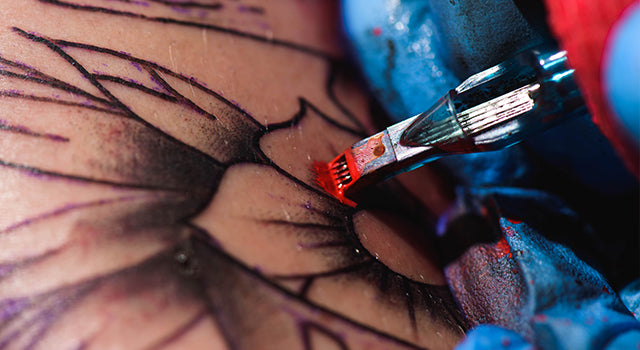
Skin Texture and Wrinkles
Skin texture also affects how your tattoo appears. If you have wrinkles or fine lines in the tattooed area, it can make the tattoo look shiny or distorted.
Similarly, if your skin is textured because of scarring or other factors, your tattoo might not appear as vibrant or may look shiny in certain areas.
Skin Healing and Scarring
As your tattoo heals, it may look fake. It could seem cloudy, faded, patchy, or blurred, which can be concerning, especially after investing a significant amount.
While some shininess is expected during the healing process, excessive shininess can be a sign of a problem.
If your tattoo appears excessively shiny or raised, it could be a sign of infection or an allergic reaction.
Scarring can affect how your tattoo looks as well. Depending on the extent of scarring, the ink may not penetrate the skin evenly, causing it to appear dull or shiny in certain areas.
Even though scars are permanent, they can be improved with laser treatment. When a scar is raised or red, lasers can soften, flatten, and blend.
My Tattoo Looks Shiny: 4 Other Facts
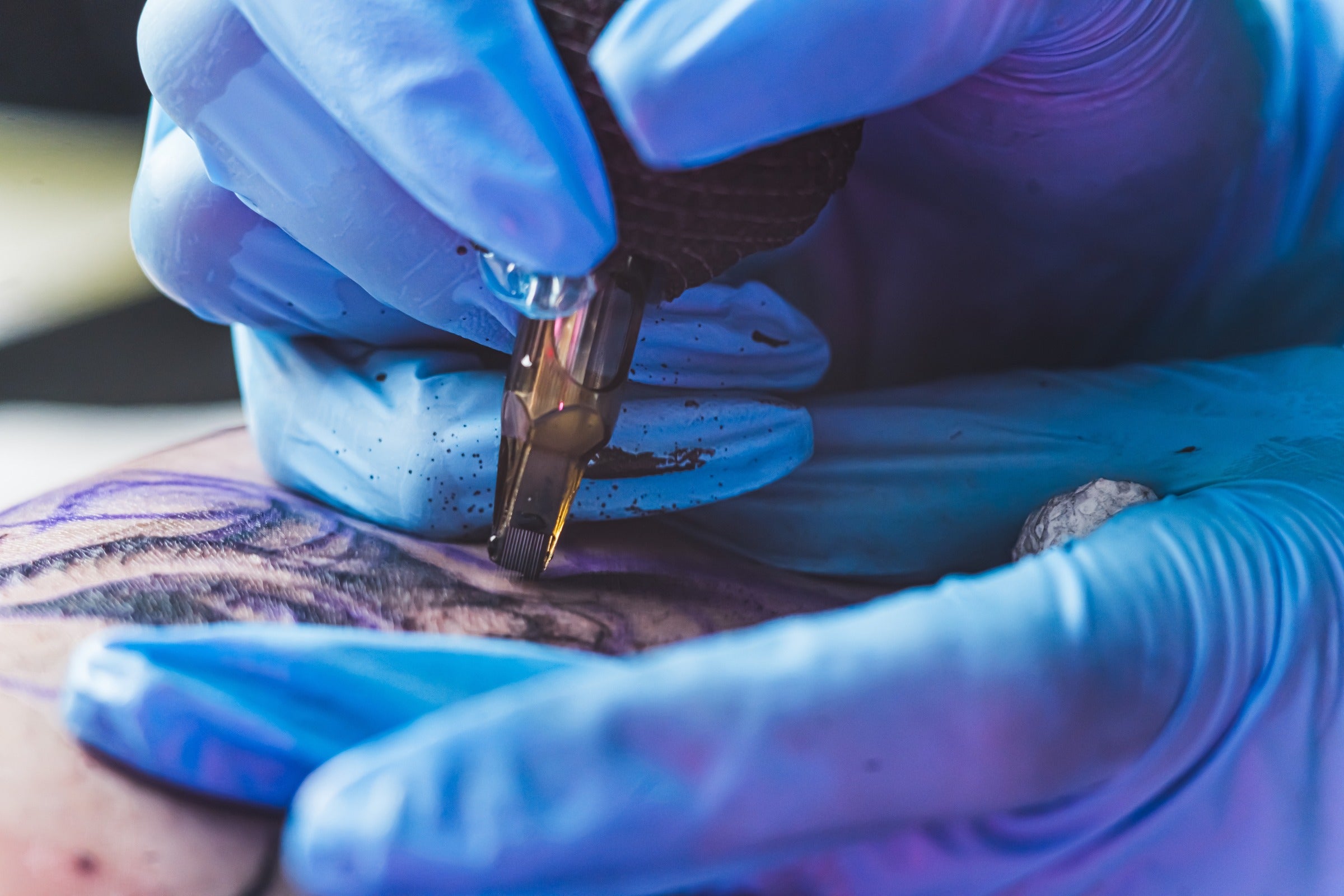
You may wonder why this occurs even though it's been years since you got inked. Beyond the initial healing period, various factors can contribute to the shininess of your tattoo.
Ink Quality and Composition
Ink composition and quality can influence the shininess of tattoos even after a month. Some inks contain metallic components that reflect light and give off a shiny finish, while others have a more matte appearance.
Inks with a high pigment density create a more pronounced shine, reflecting more light than inks with a lower density. Cheaper inks may also cause a tattoo to be more reflective because of the more inexpensive ingredients and the likelihood of increased fading.
Ink Saturation and Depth
The degree to which the ink has penetrated the skin's surface can also determine how shiny your tattoo appears. A tattoo heavily saturated and penetrating deep into the skin has a polished look compared to those more lightly shaded. A high depth of ink layers can make the tattoo appear brighter as it increases the light-reflecting surface area.

Tattoo Age and Fading
As tattoos age, they tend to fade, and the shininess may decrease. With lighter or faded tattoos, the skin's surface is less reflective, which gives a muted appearance. That's why several-year-old tattoos seem less shiny than freshly-inked ones, where the ink is fully saturated and has yet to fade.
Tattoo Design and Style
The design and style of your tattoo can also affect its shininess. Tattoos with many details and intricate lines stand out more and are shiny because of the ink's density and depth. In contrast, tattoos with extensive areas of solid color have a more matte appearance.
Environmental Factors for Shiny Tattoos
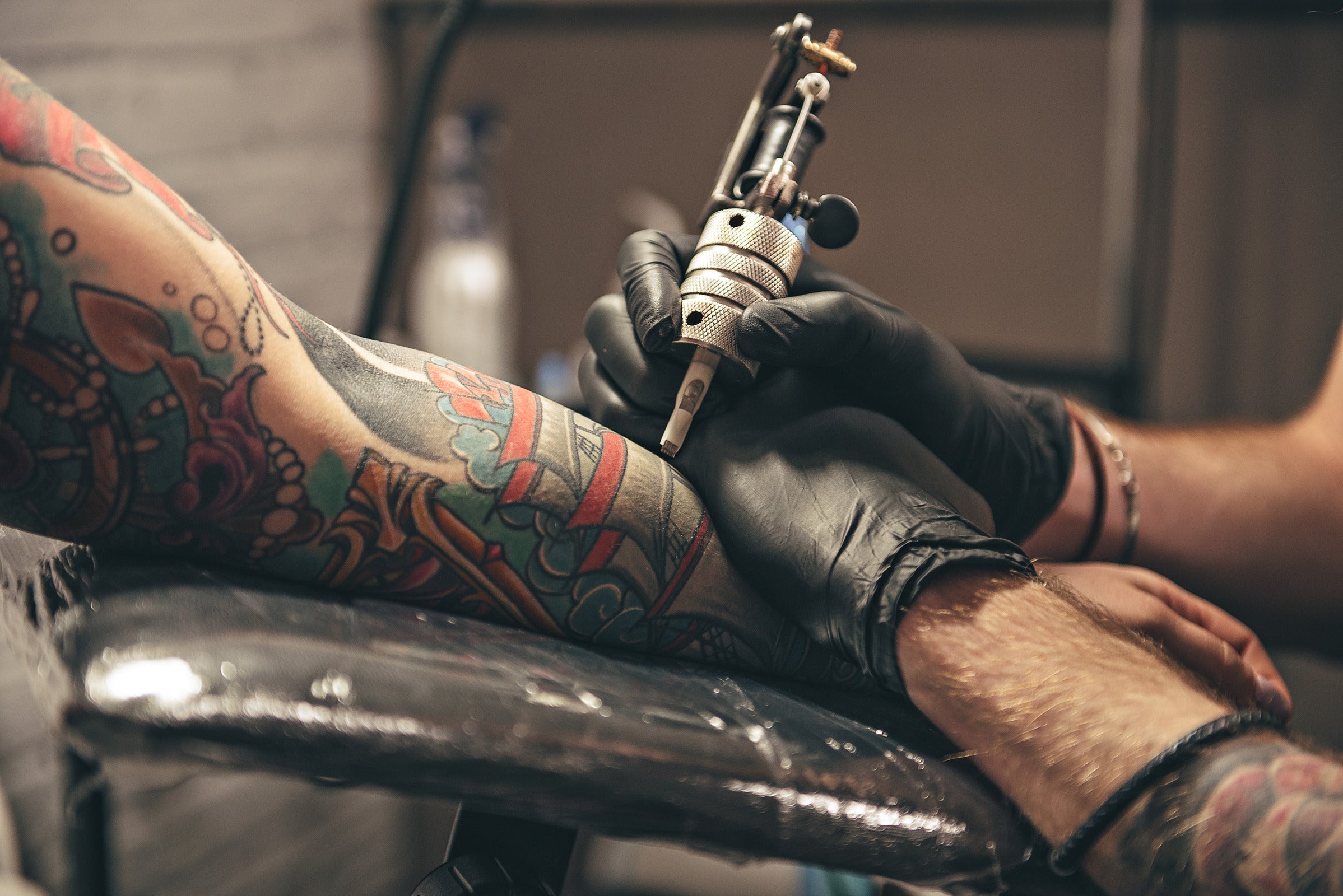
Tattoos are a beautiful form of self-expression, but environmental factors can affect their appearance. Understanding how light and clothing affect tattoo shininess can help you correctly care for and showcase your ink.
Light Sources and Angles
Light sources and angles can significantly impact your tattoo's appearance. Here are some of how they can affect the shininess of your tattoo:
- Sunlight: You can fade your tattoo when exposed to direct sunlight. Your tattoo's ink pigments can be damaged by sunlight.
- Indoor lighting: Different indoor lighting, such as fluorescent or incandescent lighting, can also affect the appearance of your tattoo. Some forms of lighting can enhance your tattoo's shine, while others may dim it.
- Spotlighting: Are you planning to show off your tattoo on stage or in a photoshoot? Be aware that spotlighting can cause your tattoo to look extra shiny. This is because the bright, direct light highlights the curves and contours of your tattoo.

Clothing and Accessories
Clothing and accessories can also significantly affect how shiny your tattoo appears. Here are some ways in which what you wear can affect your tattoo's shine:
- Tight-fitting clothes: When wearing tight-fitting clothes or accessories, your tattoo can rub against the fabric or accessory, resulting in a shiny appearance. So, choose clothing that fits well without rubbing against your tattoo.
- Fabrics: The type of fabric you wear can also impact the shininess of your tattoo. Glossy fabrics, such as silk or satin, can reflect light and make your tattoo appear shinier than it is.
- Jewelry and accessories: Particular jewelry pieces or accessories may also affect how your tattoo appears. Metallic or reflective essays may amplify the shininess of your tattoo, while mate or darker details may tone it down.
Natural and Artificial light
Natural and artificial light can alter the shininess of your tattoo and its overall appearance. Here are some things to keep in mind:
- Outdoor lighting: Natural light is excellent for showcasing your tattoo, but harsh sunlight can result in overexposure. Be mindful of where and when you expose your tattoo to direct sunlight to avoid causing damage or fading.
- Artificial light: Different lighting conditions can significantly affect your tattoo's appearance. Try to test out how your tattoo appears in different artificial light settings to determine which one is most flattering for your tattoo.
Health and Lifestyle Factors Affect Tattoo Shine
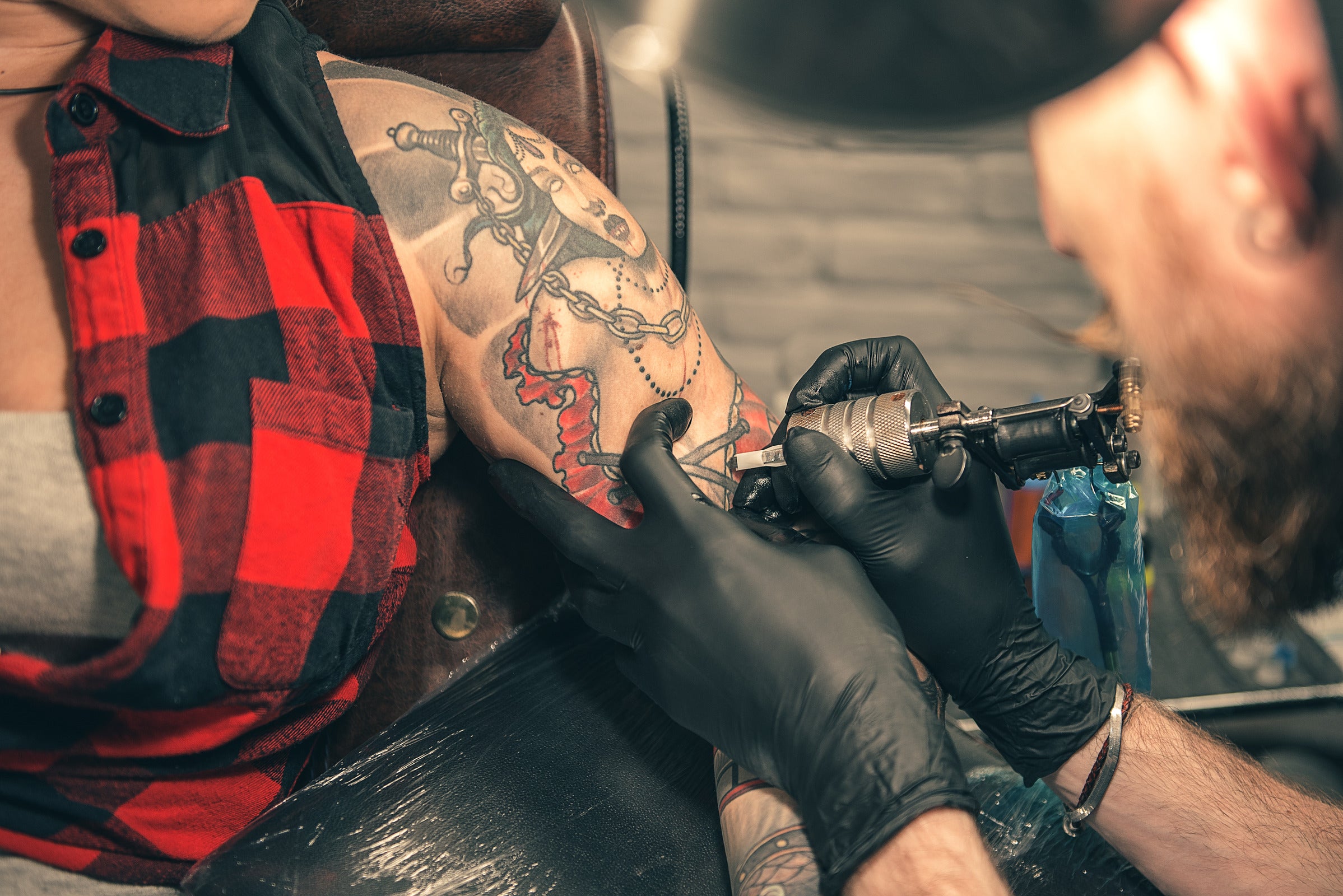
Tattoos can become shiny, which might raise concerns about the quality of the tattoo. Various health and lifestyle factors can influence tattoo shininess.
Sun Exposure and UV Radiation
The skin is a vital component of tattoo art, so tattoo ink must be deposited in the deeper layers to avoid fading and other detrimental effects. Sun exposure and UV radiation from tanning beds can damage the skin, leading to a buildup of dead skin cells that make tattoos appear shiny. Here are some additional details to consider:
- UV rays break down the tattoo ink pigments and lead to color fading, which can make a tattoo shiny and dull.
- Skin can become sagging and wrinkled when the sun's UV rays damage collagen and elastin.
- Wearing sunblock or covering your tattoo when exposed to the sun can help prevent damage and reduce the risk of shiny tattoos.
Alcohol and Drug Use
Alcohol and drug use can cause dehydration and reduce the body's ability to heal and recover from the tattooing process. These substances can also interact with the tattoo ink, leading to discoloration and changes in texture that make the tattoo appear shiny. Here are some more facts to consider:
- Alcohol and drugs impair the liver's capacity to metabolize toxins and remove impurities from the body, which can affect skin quality and tattoo appearance.
- Alcohol and drug use can constrict blood vessels and compromise circulation, reducing the flow of nutrients and oxygen to the tattoo area.
- Staying sober and hydrated can help minimize the risk of shiny tattoos and promote healing and recovery.
Medication Side Effects
Certain medications can affect the skin's natural oils, moisture levels, and elasticity, leading to changes in texture and shininess. Here are some examples:
- Retinoid creams and other acne medications can dry out the skin, causing it to peel, flake, and appear shiny.
- Steroids can decrease collagen production and increase skin thinning, making tattoos appear shiny and less defined.
- Antihistamines can cause dryness and itchiness, leading to scratching and irritation that can cause damage to tattoos.

Skin Conditions and Diseases
A variety of diseases and conditions of the skin, such as eczema, psoriasis, and dermatitis, can affect the skin's ability to heal and regenerate, leading to changes in texture, color, and appearance. Here are some key points to consider:
- Skin conditions can cause inflammation, itching, and flakiness, damaging the tattoo and making it appear shiny and dull.
- Certain skin diseases can affect pigment production, leading to color changes and unevenness that affect the tattoo's quality.
- Topical or oral medications can help manage skin conditions and prevent further tattoo damage.
Conclusion:
A shiny tattoo is nothing to be concerned about. It is a regular aspect of tattooing to have a shiny tattoo because of the healing process or the type of ink used. Maintaining a vibrant and shiny tattoo requires following proper aftercare instructions and taking extra care with metallic or iridescent tattoo ink.
So, if you've recently gotten a new tattoo that looks a little shiny, don't worry. It's just part of the process. Enjoy the unique beauty of your tattoo and embrace your individuality.

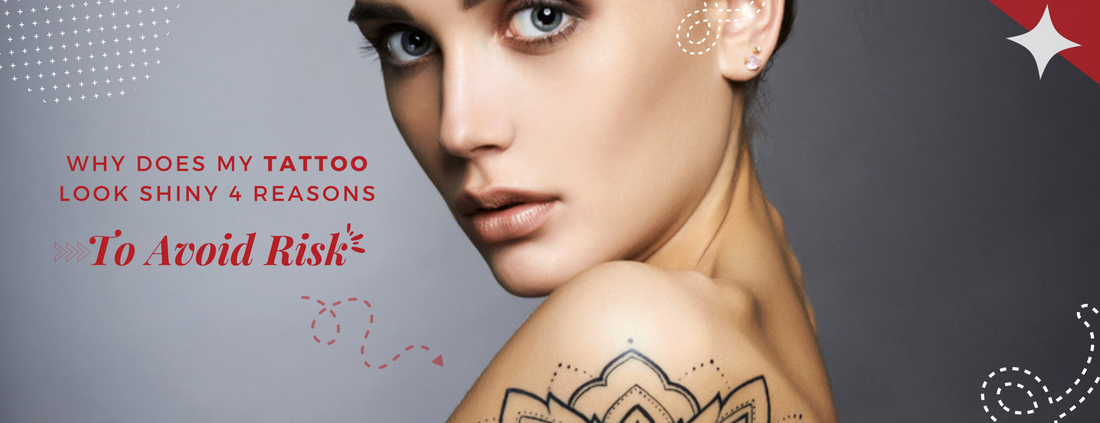










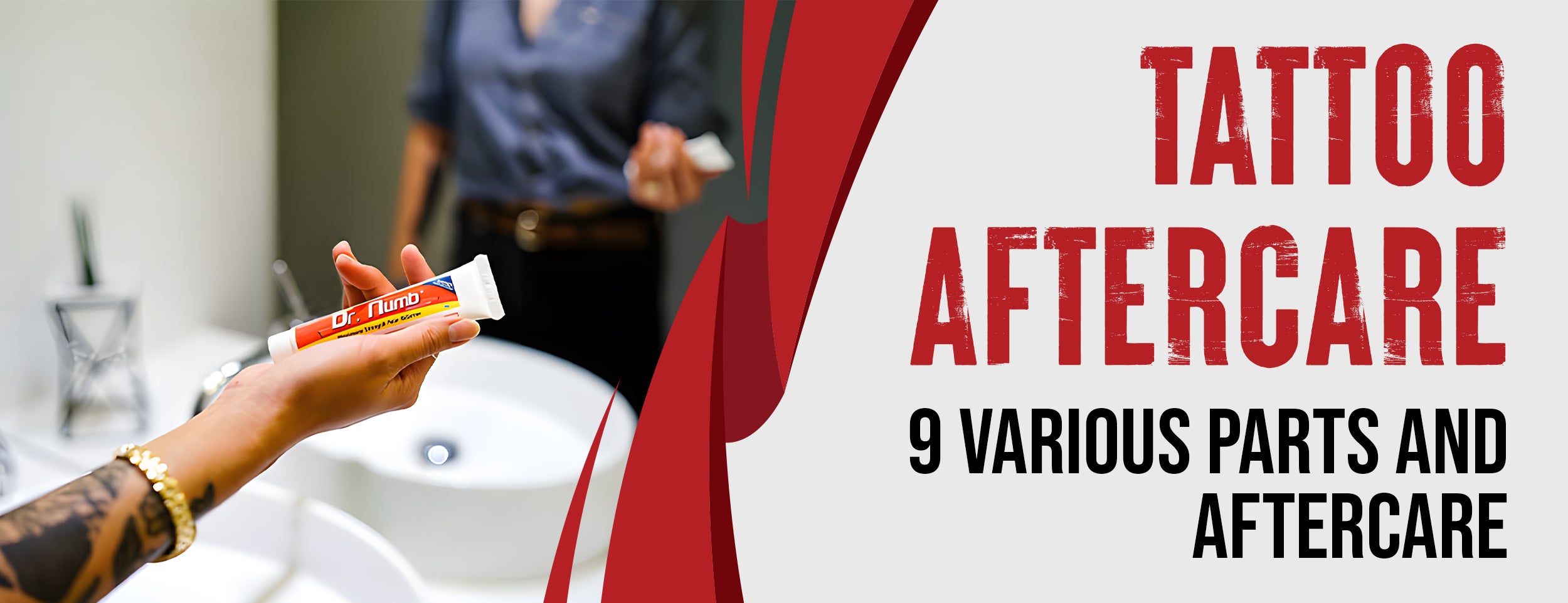
![Antibiotics and Tattoos: 3 Risks and 3 Effects [with 4 Precautions]](http://drnumb.com/cdn/shop/articles/Can_You_Get_Tattooed_On_Antibiotics__3_Risks_and_3_Effects_4_Precautions.jpg?v=1714128292)

